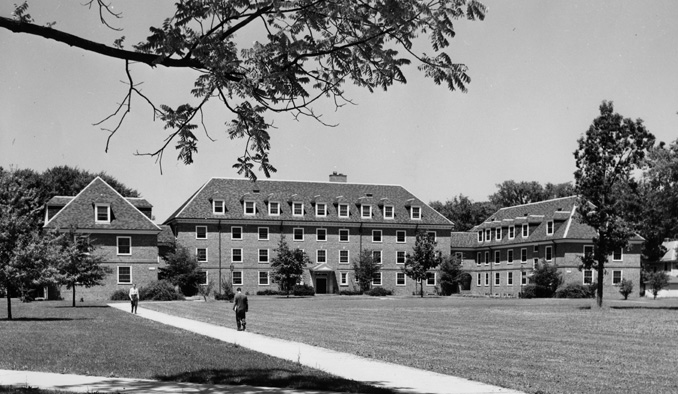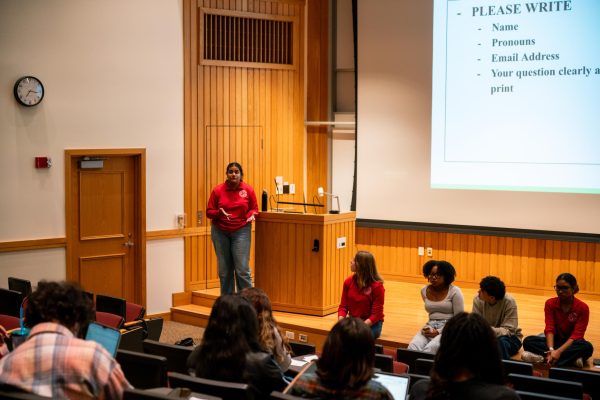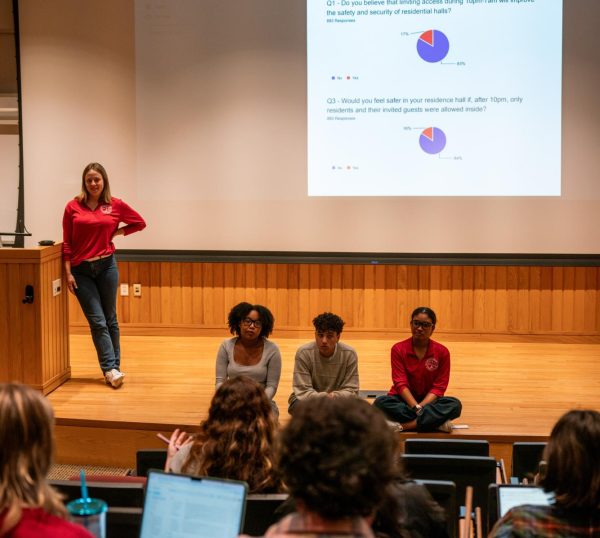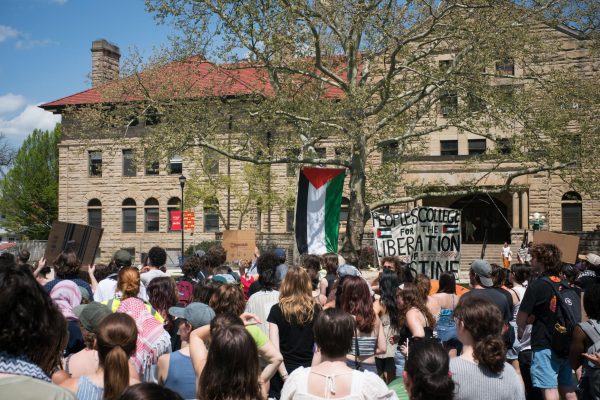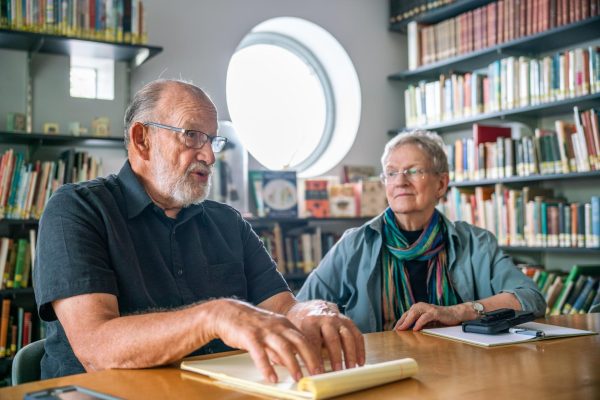ResEd To Implement Changes to Cohort System in Fall 2023
Courtesy Oberlin College Libraries
Construction on Burton Hall was completed in 1947. It then served as a men’s dorm.
The Office of Residential Education is implementing several changes to reinforce the sense of community and modernize housing, many of which will take effect this fall. From Burton Hall’s conversion to a first year dorm to the combination of the Identity and Language- Based Communities and Theme living into a “Multicultural and Thematic Experience,” there are several cohort changes coming in the 2023–24 academic year.
Assistant Vice President and Dean of Residential Education and Student Life Auxiliaries Mark Zeno, alongside Director for Residential Education for Housing Operations Phillip Shipley, is currently spearheading a new, cohort-focused housing structure. The revised system designates residence halls for first-years, second-years, upperclassmen, and students living in ILBC or Theme housing. Both Zeno and Shipley identified the unusual placement of first-years across campus dorms as a direct result of the attempt to house the large classes of 2025 and 2026.
“We wanted to make sure the [first-years] live together in our first-year experience program and that they are bonding together,” Shipley said.
Burton Hall has been designated as a First-Year Residential Experience dorm for the 2023- 24 school year. Shipley and Zeno mentioned that Burton was chosen to be converted into a FYRE dorm in part because it was the least-selected dorm to live in last year. Additionally, there would be virtually no changes to infrastructure, since the dorm already has many doubles. This change may lower the number of first-years in traditional dorms and instead cluster them into a shared dorm tailored to assist in the transition from high school to college.
The cohort model may expand to include second-years and upperclassmen in future years. Zeno explained that the cohort model will provide targeted support for students of all years — second-years in particular — with the goal of improving the student retention rate.
“Many of our other schools are following this similar trend, and … it [creates] a better experience for the students, too,” Zeno said, attributing the idea to a popular model that targets second years as the most critical group to support when it comes to retention.
ResEd is currently in the process of constructing new Village Housing Units and a new dorm in an effort to more comfortably accommodate the growing student population. The newest Village Housing addition will be built on Goldsmith Lane by the start of the 2024–25 academic year. This complex boasts 60 beds and completely new, studentselected furniture. The following year, the new 400-bed dorm will be completed on Woodland Street with similarly modern furnishings. Both complexes are aligned with the Sustainable Infrastructure Program.
Another major change in the 2023-24 academic year is the combination of Identity and Language-Based Communities with Theme Living. Currently coined the Multicultural and Thematic Experience, this merger attempts to lower the burden placed upon ILBC Resident Assistants, who currently carry out more duty hours than any other RA cluster on campus. For reference, many ILBC RAs have duty thrice weekly, compared to some other clusters that have duty twice per month. This semester RAs were switched to a location-based rounds system rather than a sectional one, to begin alleviating the ILBC RA workload.
The switch has raised concerns about students who aren’t people of color entering identity-based spaces. Afrikan Heritage House RA Wyaé Stewart expressed her fears around changes in the RA rounds system.
“I fear for my residents,” Stewart said. “I am scared that a student who doesn’t understand some of our culture or experiences will come and call Campus Safety on a student without thinking of the implications and problems they are causing.”
Stewart also noted that, though all RAs are compensated equally, the job of RAs in the ILBC is far more involved than that of their peers and requires more than just physical labor.
“It’s emotional awareness … more [than] clusters outside of ILBC have to deal with, especially when it comes to a subject such as race and identity,” Stewart said.


